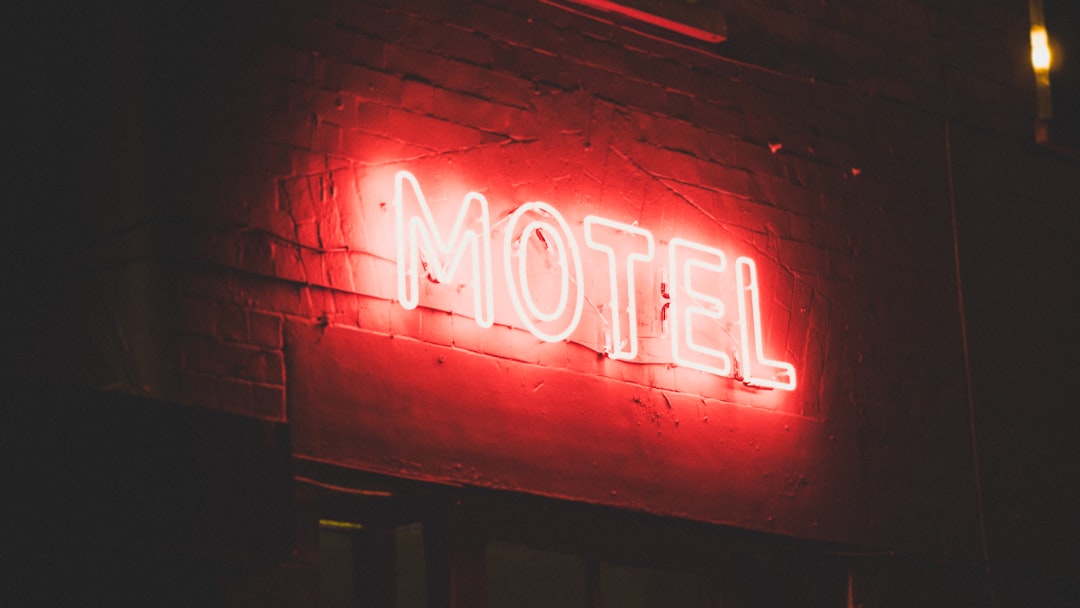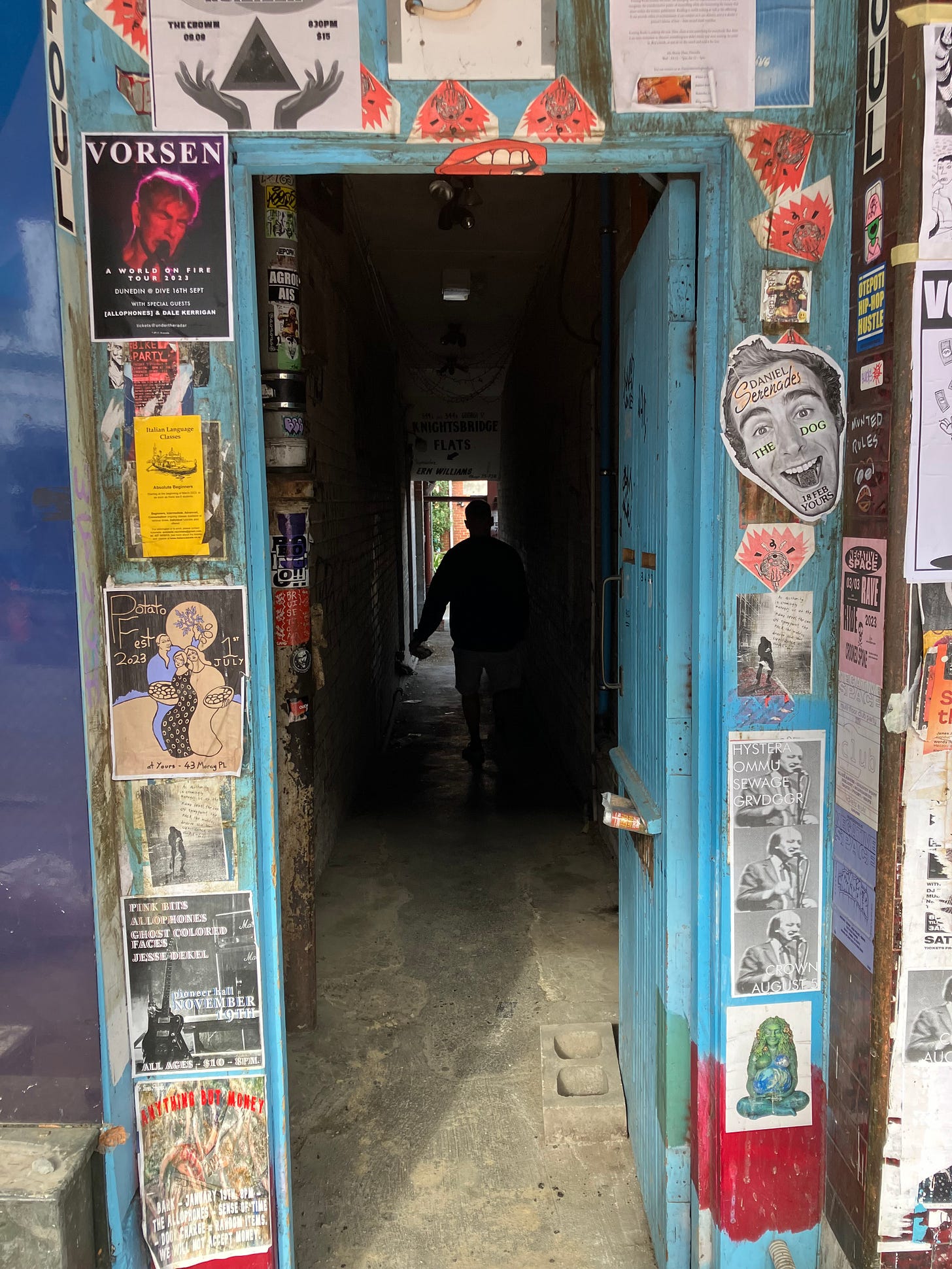The issue of housing, and particularly boarding houses, has been a sad topic of late.

These people are often the most vulnerable in society, and the choices they have available are limited due to the shortage of housing and lengthy waiting lists, with some impacted by mental health issues and alcohol and drug addictions.
A walk down George St is a visible reminder of the housing issues facing some New Zealanders. The other day I counted five people begging in just two city blocks - three of those had signs saying they were homeless.
I will never forget interviewing a man in Invercargill who ripped up the floorboards of his cold wooden house and burnt them on his open fire for warmth during a cold spell.
I’ve been thinking about whether I look at boarding houses, but decide to leave that to the ODT, but I have become increasingly aware of the number of motels and backpackers that have been housing those who were yet to find a stable address to call their own.
I first highlighted this in a previous newsletter when I wrote how Stafford Gables collected $86,000 from the Ministry of Social Development in 2020, for a total of 860 bed nights. I looked at this because I wrote about a family who paid $600 a night to stay at the backpackers on the night of the Red Hot Chili Peppers’ concert earlier this year.
That family, a dad and his three daughters, found damp sheets, pubic hair in a ball pressed into a wall, broken beds, a bathroom heater hanging by a wire and then the final insult: poo in the corner.
Probably not worth $600 a night.
But it got me thinking: just how many other accommodation providers in this city, are renting their rooms as ‘emergency housing’ to MSD?
Well, quite a lot.
But first an explainer: an Emergency Housing Special Needs Grant (EH SNG) is available to people who cannot remain in their usual place of residence, if any, and do not have access to other accommodation which is adequate for them or their family's needs.
That means the Ministry, in this case MSD, pays the grant directly to the accommodation supplier with assistance “generally granted for up to seven nights but can be extended dependant on individual circumstances”, according to housing group general manager Karen Hocking.
So if they stay for those seven nights, Work and Income will arrange another appointment to discuss their housing situation and if another grant is required.
“The Ministry recognises that motels are not a long-term solution, or the solution that we want to deliver for people who are potentially in a vulnerable situation. They provide a short-term solution while more sustainable options are progressed.”
That’s a good answer, and we can see certainly see an increase in housing stock from the private sector, council and Kainga Ora.
But back to the motels. So I filed an Official Information Act request (OIA to those playing at home) regarding how much those providers received.
In 2018, Dunedin accommodation providers received about $185k, with The Leviathan receiving about $45k to house 36 clients over a combined 435 nights.
By the next year, the figures show those payments increasing significantly to $445k, with the Cumberland Motel getting $86k to house 27 clients over 423 nights.
From those figures, it is obvious that most people were staying far longer than seven nights, and we can really see the crunch on the city’s housing sector.
From 2020 it really gets interesting, because that is the time when Covid hit and the borders were shut, so these grants also kept some of these motels afloat.
So in 2020, the grants topped $1 million, and included several places being paid six figures. That included Alcala Motel receiving $172k (45 people for 1299 nights), Owens Motel $172k (48 people 1203 nights), and then Stafford Gables, which I’ve previously reported.
In 2021, the number of grants fell to $426k, with Alcala Motel again one of the top providers with $76,497 (36 people, 555 nights) while Owens Motel earned $58k (21 people, 309 nights), and Cumberland Motel $58,526 (12 people, 270 nights).
When you break them down, some of these seem quite expensive per night. The Cumberland Motel works out to be $216 a night, given these are its normal prices.
Last year the grants increased to $531k, with Cumberland Motel earning $113k (24 people, 564 nights) and a big new entrant being Motel on Carroll with $107K for 21 people over 624 nights — that’s an average stay of 29 nights. Owens Motel made $77k, while George St Motel and Apartments made $72,120 to provide accommodation for just a dozen people.
This year, for the year ending June 30, the total payments were about $165k, with Cumberland Motel earning $77k.
The list includes a few places that had turned from backpackers to boarding house: Stafford Gables, Manor Place Backpackers, and a few more expensive places. That included Wains Hotel, which in 2020 hosted a dozen people for $1200.
The figures overall show numbers trending down in recent years, after the Covid spike.
Hocking note that demand for housing across New Zealand was growing and many people were experiencing a severe and immediate need.
This demand was generated by a shortage of affordable housing driving up house prices and rents. People on low incomes were most affected by rising housing costs and many sought financial help through MSD.
She also noted that some people may struggle to access suitable housing due to a lack of available supply, or they simply may not be able to meet the high cost of housing which may result in them receiving the emergency housing grants “for an extended period of time”.
And for people with high and complex needs, it can sometimes be challenging to identify suitable long-term housing, which can lead to longer stays in emergency housing”.
Work and Income worked closely with those people to “see what can be done to ensure that once they have a home of their own, they have the skills to sustain it, and the support they need to keep it”.
She also noted that emergency housing suppliers were expected to meet all the relevant regulatory standards imposed by regulatory authorities, including local councils.
Quality standards for emergency housing suppliers would be introduced on November 6, with MSD to prioritise working with suppliers who have signed up to these standards.
You can read more about those standards here.
MSD said no emergency housing providers in Dunedin were deemed unsuitable, largely because they did not have the information.
That’s because, and we are going to go full Monty Python here, MSD plays no role in building regulatory compliance. That was a job for councils, the Ministry of Business, Immigration and Employment and Fire Emergency New Zealand.
“The Ministry's responsibility is to assess people's eligibility for financial assistance.”
Last Wednesday, the city hosted Labour leader Chris Hipkins. We had the announcement at the Otago Medical School, then the staged visit at the cleanest student flat I’ve ever seen it (as an aside, why bring sugary donuts when a central plank of your election campaign is about dental care…), and then at Otago Polytechnic to open the new trade training facility.
I’m sure Hipkins will come back again on the campaign trail, and I expect that will include some visits to the Taieri electorate, and perhaps a student walk-around.
Last week’s visit was as much as raising the profile of Rachel Brooking, who now will face off against another candidate Jim O’Malley, who joins the likes of Michael Woodhouse, Dr Ben Peters and Francisco Hernandez in a fascinating campaign for a seat vacated by Dr David Clark.
Brooking should be the front runner in a Labour stronghold, but when the tide is turning, and it appears to be so, this will be one to watch.
Clark came into politics in the 2011 election, and numbers from that election showed he won almost 13,000 votes, to Woodhouse’s almost 9500. Of course that featured Metiria Turei who received 5700 votes. That same election saw Labour win only a few hundred more party votes than National, which were in power at the time under Key.
I remember looking at the results from the booths around campus, and being stunned that National won two of six booths. The next election they won all seven. You can read that ODT story here.
What I’m saying is that Labour can’t afford to take Dunedin for granted, as there is clear anger in the community about cuts to the tertiary sector and the hospital, while the cost of living crisis is impacting everybody. You add in a few candidates with name recognition and you would have to think it is ‘game on’ in the Democratic Socialist Republic of Dunedin.
A day after that visit by Hipkins, I was driving to Hyde to attend the Strath Taieri community board meeting, largely over the Code of Conduct
You can watch his apology here.
It was good he apologised, but I thought it would be smarter if he stood down as chair and stay on the board. But no.
“I’m sorry for the impact my behaviour has had on the person involved.”
I spoke to Cr Bill Acklin after the meeting, who said there was zero tolerance for the language Williams used, particularly from elected representatives.
He noted how those words had impacted the wider council and “snowballed”, which was in reference to the resignation of Cr Sophie Barker as deputy mayor, and two code of conduct complaints.
The strangest bit of covering the meeting came after Middlemarch resident Shane Loader used his five minute time to talk about Williams and the “racist underbelly” of New Zealand.
That prompted board member Tony Markham to ask him how he performed in the last election, and whether he ever played rugby.
“I played rugby, and I played it for 10 years,” Loader replied.
“How did I go in the community board? I came last, I was the lowest polling candidate and I am proud in a community that supports racist behaviour . . . that I came last.”
As an aside, Shane Loader’s father was the late All Black Colin Loader, who died in Dunedin in 2021, aged 90.
I feel that the divide in the Middlemarch community will take some time to heal.
If you want something different to do on Friday, try taking a bus.
The Dunedin City Council and the Otago Regional Council are offering free buses across the city on Friday to celebrate International Car Free Day.
Bee Cards machines will be deactivated for the day, and further information including timetables and the journey planner can be found here.
Next Sunday, Lan Yuan Dunedin Chinese Garden will celebrate its 15th birthday with a day of public activities at the garden, which coincides with Chinese National Day and the annual Moon Festival. More information is available here.
Do you know where this is? If so, please mention in comments below.
I was interested to see that TVNZ had finally posted their job for the Dunedin reporting role, which was vacated in *checks diary* back in April.
“We’re committed to maintaining a strong news presence across the South Island,” a TVNZ spokesperson told me at the time.
That’s five long months, and it will be longer before the replacement reporter role, in this case a ‘Video Reporter’, hits the ground.
A video reporter of a different kind, here is a Dunedin travel special from a YouTuber:
Next month it’ll be 30 years since the release of this track, seems like yesterday:
And this:
So good.
Lastly, and quite importantly, I’ve made a decision to end the newsletter. It is time. I’m quite overwhelmed with work at the moment, and feel it is time. I have loved the opportunity given to me by Stuff (thanks to Mark, Angela and Julia), Substack (Hamish the main man), and of course you the subscribers. Any subscribers with time remaining on their subscription will receive a refund. Any issues with those subscriptions just contact me below.
My favourite posts have been the following:
Locked-in and locked-out: The battle facing Nick Chisholm
Champion wheelchair bodybuilder Nick Chisholm. Photo: Hamish McNeilly His eyes zero in on the question mark. And again. And again. “? ? ? ? ? ? ?” Nick Chisholm spells out via his communication board - a transparent Perspex board covered with the alphabet which he uses to spell words using his eyes.
The man who lives in a cave
Little John walking through the forest. Photo: Hamish McNeilly I heard a rumour about a mysterious man who lived in a cave near Outram a few years back. So a photographer and I went to what we thought was the spot, but we never found him. In journalism you end-up chasing a few of these dead-ends.
'You lying fiction-writing creep'
Like many stories, it started with a phone call, a text and an email. Unlike many stories, it quickly escalated. The subject, as you can see in the email below, was ‘Parking ticket’, the recipient, as you can also see below, was Lee Vandervis. From: Hamish McNeilly <
The bullet and the relationship it could not kill
Words cannot describe the raw emotion heard in the High Court at Dunedin on Wednesday morning. That came from Missy Parata, who spoke of the moment when her high school sweetheart was shot. Nine months on, and Hemi Tahuri, 25, is continuing his long journey of recovery in Christchurch, while the man who shot him, Krishan Dick-Karetai, has been jailed for …
And,
A $2 return trip (OK, I paid $3) to travel 126km
What does $1 get you today? A frozen coke from McDonald’s, 20 minutes of parking in Dunedin’s CBD, or an Instant Kiwi ticket. Instantly forgettable use of your money. But what if I told you that you could spend $1 on a 63km bus journey to another town!!!!!!
It has been a blast, you can still find my stories at Stuff.co.nz, or follow me on X @southernscoop, or email me anytime at hamish.mcneilly@stuff.co.nz.











The promise of your excellent newsletter helped get me through many hump days. Thank you Hamish, The Mish was like a wunderkammer of Dunedin curiosities. All the v best.
It's been great, thanks Hamish. Excellent reading.